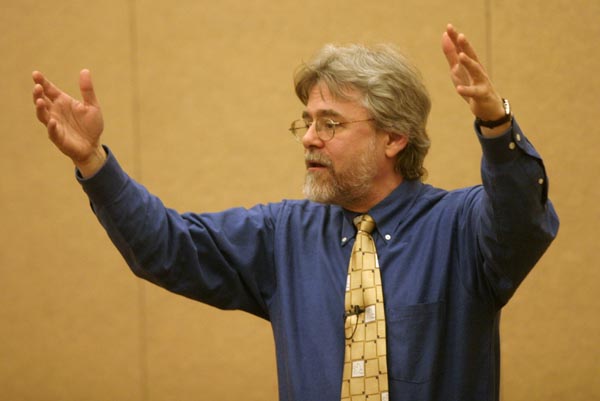| I got this from the regular Sojourners listserve that goes out, and I thought I'd share it, since I wrote about this the last two posts. This well spells out what we can do about this urgent matter. I promise to tell about a very exciting new book tomorrow. Read this first and pray hard for guidance.
Hiroshima, Nagasaki, and nuclear realism by David Cortright advertisement
 | This week, hundreds of children at the Yamazato Elementary School in Nagasaki gather for a ceremony, as they do every year, to commemorate the 1,300 students who were killed there when the atomic bomb fell on their city 60 years ago. As part of the ceremony, children pour water on a stone monument, symbolically quenching the thirst of the bomb's victims and offering prayer for their souls. Ceremonies are taking place all over the world this week to remember the more than 300,000 Japanese who died from the atomic bombings (95% of them civilians), and to reflect upon the enormous moral and political implications of those events. They remind us that nuclear weapons cause indiscriminate mass annihilation. They are tools of terror. By their very nature they violate the moral principles of justice, discrimination, and proportionality. Nearly all major Christian churches, and many Jewish and Muslim bodies, have spoken out against nuclear weapons. After declining at the end of the Cold War, the nuclear danger is increasing again - due to the risk of terrorists acquiring such weapons, the spread of nuclear capability to North Korea and beyond, and plans in the U.S. to develop new "bunker buster" weapons and resume nuclear production and testing. Former Defense Secretary William J. Perry said last year, "I have never been more fearful of a nuclear detonation than now.... There is a greater than 50% probability of a nuclear strike against U.S. targets within a decade." To address these threats and reactivate the religious voice for disarmament, Rev. William Sloane Coffin Jr., former minister at Riverside Church in New York City and longtime peace and anti-nuclear activist, has issued an "Appeal to the Religious Communities of America." In response, Sojourners and other groups are joining together to create a new Inter-Religious Network to Eliminate Nuclear Weapons, which will build public awareness and support for concerted efforts to freeze, lockdown, and eliminate nuclear weapons. The first challenge is to prevent the funding of the "bunker buster" bomb and halt the production of new nuclear weapons. The new bombs the Pentagon wants to build are dozens of times larger than those that destroyed Hiroshima and Nagasaki. When exploded in the earth they would release vast quantities of lethal radioactive fallout. Congress will vote on appropriations for the bunker buster this fall. It is urgent that religious people take the lead in speaking publicly against such weapons and urging their elected representatives to vote no. The more difficult long-term challenge is to build pressure for the further reduction and elimination of all nuclear weapons. The Inter-Religious Network will develop a campaign to demand that the governments of the United States and other nuclear powers develop detailed blueprints for how to eliminate nuclear weapons. So-called realists claim that the advocates of nuclear abolition are utopians. On the contrary, the naive utopians are those who believe that governments can maintain nuclear weapons in perpetuity without their actual use, either by accident or design. As former Defense Secretary Robert McNamara has said, the indefinite combination of human fallibility and continued reliance on nuclear weapons will lead to catastrophe and the destruction of cities. Nuclear abolition is realistic. Opinion polls show that two-thirds of the public agrees that "no nation should possess nuclear weapons." Detailed plans for how to reduce and eliminate nuclear weapons were developed in 1996 by the Canberra Commission, a prestigious group of former defense officials from the nuclear weapons states. The plans feature step-by-step reductions, accompanied by stringent monitoring and verification, and an international agreement outlawing nuclear weapons. Treaties against biological and chemical weapons already exist, and it is past time for a similar ban on nuclear weapons. New campaigns need new language. A key concept for the new campaign might be "nuclear lockdown." The lockdown phrase has strong appeal. It has been tested in focus groups and public opinion polling, which show broad public support for energetic efforts to lockdown nuclear weapons so that terrorists do not acquire them. The lockdown term implies robust, vigorous action. It embodies security and safety. It paints a mental picture of the physical steps that are necessary to eliminate nuclear weapons and materials. It provides a frame, to use George Lakoff's term, for how to eliminate the danger from nuclear weapons. The following would be our definition of the term: "Preventing nuclear weapons and materials from falling into the hands of terrorists or tyrants is and must remain the top priority for U.S. and global security. Achieving this goal requires locking down and securing all nuclear weapons and materials on earth, through a rigorous international monitoring system and a universal ban on the development, production, testing, or use of such weapons." As Coffin says, "Only God has the authority to end all life on the planet. All we have is the power." It is time to relinquish that power, to serve rather than usurp God by preserving life. "Never again" is the plea that the children of Yamazato Elementary School offer every year in memory of the students who died there. It must be our plea too, as we remember the horrors of 60 years ago and recommit ourselves to eliminating that danger for this and future generations. David Cortright, a Sojourners contributing writer and board member, is founder of the Win Without War coalition and president of the Fourth Freedom Forum. | 






<< Home